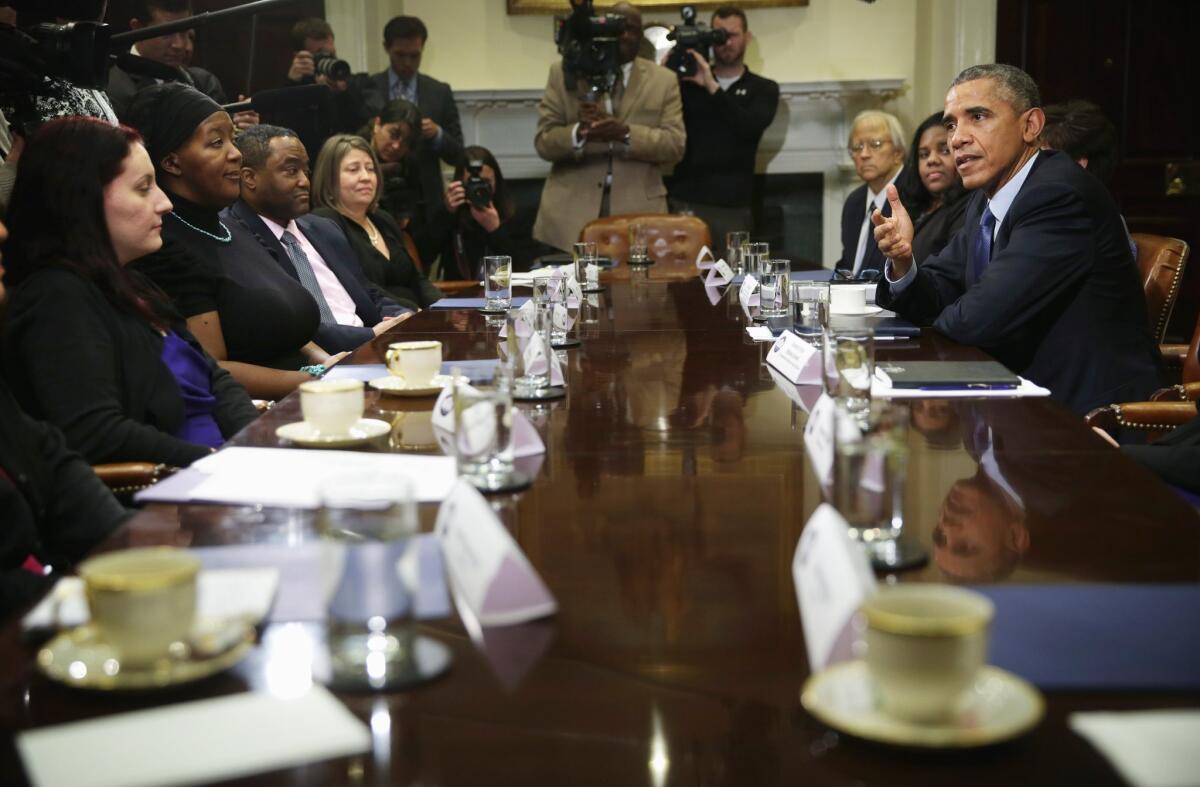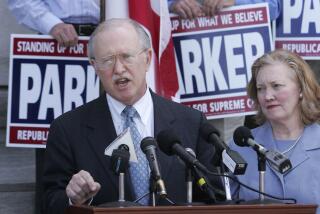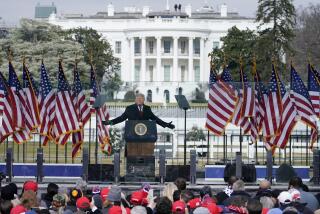Editorial: Obamacare challengers’ ridiculous claims head to the Supreme Court

Having saved the 2010 Affordable Care Act from a legal assault in 2012, the Supreme Court again finds itself holding the fate of Obamacare in its hands. The court is slated to hear arguments Wednesday in King vs. Burwell, a lawsuit that claims federal insurance subsidies should be available only to people buying coverage on exchanges set up by their state governments — and not to people in the 34 states that let Washington set up their exchanges for them. If the lawsuit prevails, it could cause premiums to rise uncontrollably in those states while denying millions of Americans the coverage they badly need. It would also render the insurance reforms at the heart of Obamacare unsustainable in much of the country.
There are numerous reasons why the court should reject the plaintiffs’ phony narrative about the new exchanges that Congress required in every state. One of the best, though, is that a ruling in the plaintiffs’ favor would retroactively penalize states and their residents for choosing to let Washington run their exchanges when the consequences couldn’t have been foreseen.
The handful of plaintiffs in King and a similar lawsuit, Halbig vs. Burwell, say they don’t want to buy health insurance and would qualify for a hardship exemption if there were no subsidies to make the coverage affordable. They’re joined by a few businesses that would face penalties under the law only if their workers obtained subsidized coverage. Although one provision of the law says that anyone who meets the income limits is eligible for subsidies, another says the size of the subsidies will be based on the cost of insurance purchased at an exchange “established by the State.” From that thin tissue the plaintiffs spun out a fanciful story about lawmakers trying to coerce states into building their own exchanges by threatening to withhold subsidies from low- and moderate-income residents.
If Congress was making such a threat, that’s news to the lawmakers who wrote the act, who told the court that they intended subsidies to be available through every exchange. State officials were in the dark too, which would violate a Supreme Court precedent that requires Congress to give states clear notice when it attaches strings to the money it offers, officials from 22 states have argued. Had the public known that the insurance subsidies wouldn’t be available if their states didn’t set up an exchange, the debates in state capitals over whether to do so would have been far more consequential — and presumably, much harder fought.
The plaintiffs in King have the right to put their own interests ahead of the roughly 9.3 million people who now have subsidized health coverage in the 34 states that did not set up their own exchanges. But they don’t have the right to contort the law’s meaning so that one phrase taken out of context undermines the rest of its provisions, or to rewrite the history of its enactment to support their ridiculous claims.
Follow the Opinion section on Twitter @latimesopinion and Facebook
More to Read
Start your day right
Sign up for Essential California for news, features and recommendations from the L.A. Times and beyond in your inbox six days a week.
You may occasionally receive promotional content from the Los Angeles Times.






